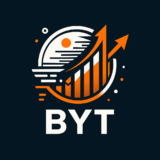It is said that familiarity breeds contempt, but when it comes to buying stocks, investors too often favor the familiar and expensive over less familiar, better bargains. Take two of the biggest names in electric cars for example, America’s Tesla (NASDAQ:TSLA) and China’s BYD.
Confident Investing Starts Here:
- Easily unpack a company's performance with TipRanks' new KPI Data for smart investment decisions
- Receive undervalued, market resilient stocks right to your inbox with TipRanks' Smart Value Newsletter
One of these, you’ve certainly heard of by now; the other, perhaps not. After all, BYD is not only based on the other side of the world in China, but it’s also listed there, rather than here, making it a bit trickier to invest in. However, as Bernstein analyst Toni Sacconaghi suggests, it may be worthwhile to become more familiar with BYD.
As Sacconaghi explains, Tesla may be the better known EV stock, but it’s actually not much better than BYD in any significant respect. Actually, the contrary is more accurate. “The two leading EV manufacturers,” says the analyst, “are now comparable in size across volumes, revenues, and profit dollars.” And because BYD is growing so much faster than Tesla (sales by unit volume of the former are expected to grow 29% next year, versus only 19% for Tesla), by the time December 2024 rolls around, BYD is likely to be reporting annual revenues of about $112 billion (only $2 billion behind Tesla).
Granted, BYD EVs cost a bit less than Tesla EVs, and so currently generate less profit for Tesla’s Chinese rival. Operating earnings for BYD are thus likely to lag Tesla $7.1 billion to $8.7 billion next year. That being said, if BYD continues to outgrow Tesla, and can maintain its 33% earnings growth rate into 2025, well, that would imply that a couple years from now the two companies’ positions could entirely reverse, with BYD earning more than $9.4 billion, and Tesla still earning $8.7 billion.
And here’s the biggest difference of all: Valuation.
It turns out that American investors more familiar with Tesla than with BYD are willing to pay through the nose for familiarity. Valued on 2024 earnings alone, Tesla shares at $750 billion in market capitalization sell for 60 times forward earnings. BYD shares at $90 billion in market cap cost a mere 15x earnings.
And again, this is for a company growing earnings at 33% annually, resulting in a PEG ratio of less than 0.5 on BYD stock.
Does this make sense? Not to Sacconaghi, it doesn’t. “We struggle to bridge the $600B+ valuation gap that exists between Tesla and BYD,” wonders the analyst, arguing that “in the long term, valuations matter, and based on fundamentals, valuations between Tesla and BYD are more likely to converge than diverge.” Meaning, Tesla which is growing sales more slowly than BYD, and isn’t currently growing earnings at all, should see its stock price decline over time. BYD on the other hand, which is growing both sales and earnings faster than Tesla, should be rewarded with a higher P/E ratio for its success.
Accordingly, Sacconaghi rates Tesla stock Underperform (i.e. Sell) with a $150 price target (i.e. 40% downside), while he rates BYD stock Outperform (i.e. Buy) with a 359 Hong Kong Dollars price target implying 57% upside. (To watch Sacconaghi’s track record, click here)
Looking for a trading platform? Check out TipRanks' Best Online Brokers , and find the ideal broker for your trades.
Report an Issue









